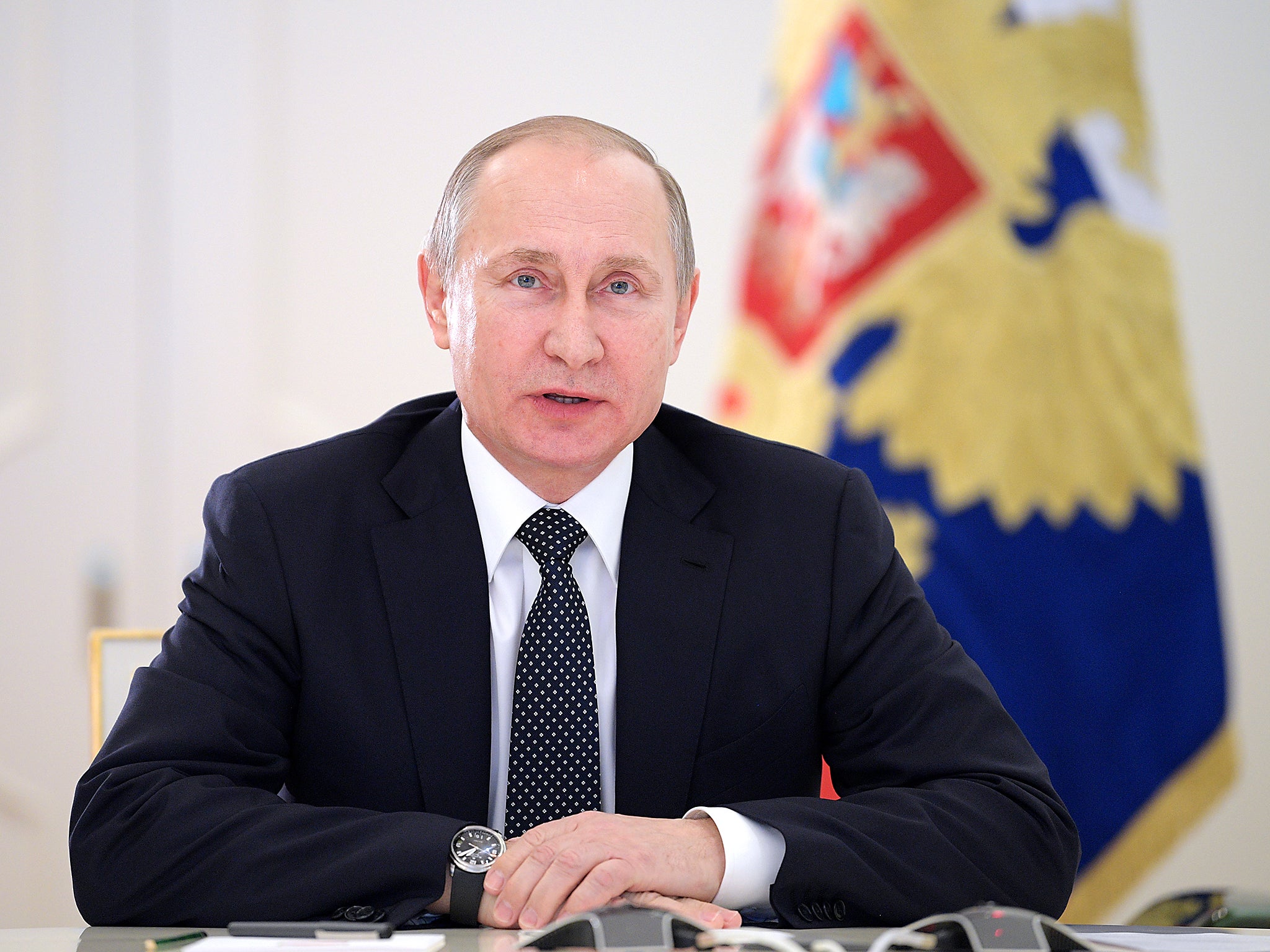If the EU wants to survive after Brexit it should build closer ties with Russia
How might Europe turn Brexit to its advantage? There was something of that in the Prime Minister’s speech but what she says carries no force. What we think does not matter. It is up to them


How can Brexit be better for Europe? From the UK perspective the whole business is about the sort of economic relationship the country will feel comfortable with. The debate is framed as a balance of positives and negatives: gaining freedom over borders and over trade with non-EU countries, but at the cost of less favourable access to the European market.
From a European perspective, however, the debate has been largely framed in terms of competing minuses. By how much should the UK be punished for leaving? It must not be allowed to “cherry-pick”. How much damage might there be to European exports? There are modest pluses, such as the luring of banking jobs out of London and towards Dublin, Frankfurt or Paris. But, put it this way, the idea of the UK leaving the EU is not generally regarded as a positive for the project. If you watch the response of the audience to Theresa May’s Brexit speech on Tuesday, note that the British clapped enthusiastically but several European ambassadors refused to applaud.
There is, however, another way of looking at it. This involves seeing how Europe might turn this to its advantage. There was something of that in the Prime Minister’s speech but what she says carries no force. What we think does not matter. It is up to them. Within Europe there are a number of thoughtful voices, all sounding rather different than the knee-jerk reactions yesterday.
A good place to start is the Ifo Institute, the best known and most prestigious German economic research group. Here’s what its president Clemens Fuest said: “Europe should sign a free trade agreement with Britain that is as comprehensive as possible and that also maintains close economic integration in terms of services. A transitional period of several years during which current trade rules remain applicable should be agreed upon. The debate over alleged cherry-picking has to stop. It is poisoning the atmosphere and is only creating deeper divisions.”
Sensible stuff. But he is still seeing this in terms of minimising the damage. Could there be a more positive view? The best argument I have seen was made back in August in a paper by the Bruegel Institute in Brussels, one of the foremost research groups on the Continent. I have referred to it before but in case you have not come across it, it is here.
The paper has five authors from different European countries, the British one being Sir Paul Tucker, former deputy governor at the Bank of England. This is the nub of its argument:

“We propose a new form of collaboration, a continental partnership. The UK will want to have some control over labour mobility, as well as leaving behind the EU’s supranational decision-making. The proposed continental partnership would consist in participating in goods, services, capital mobility and some temporary labour mobility as well as in a new system of inter-governmental decision-making and enforcement of common rules to protect the homogeneity of the deeply integrated market. The UK would have a say on EU policies but ultimate formal authority would remain with the EU. This results in a Europe with an inner circle, the EU, with deep and political integration, and an outer circle with less integration.”
Now I have to acknowledge that this approach has not been warmly received in Brussels, but then you would not expect it to be. All bureaucracies seek to retain their power, and any country leaving the EU reduces that. It also cuts their budget, for the UK has been the second largest net contributor to the EU after Germany. More than one-third of the net contributions to the budget come from the UK. But as a vision it should surely be appealing, because it accepts that the inner core can carry on integrating if it wants to, but also accepts that the outer ring should have some say in how Europe as a whole develops.
This may not work. It may be that there has to be a rupture before things can be put together again. But nothing is forever, and the present model of Europe will inevitably change.
The big strategic issue for Europe must surely be how to bind Russia into the fold, rather than have it as an angry, disruptive neighbour threatening the EU’s eastern flanks. The idea of an outer circle could be a model not just for the UK but also for Russia, however unlikely that appears under its present leadership. Giving Russia a say in EU policies might seem unthinkable, but then to most people a year ago the idea of the UK leaving the EU was unthinkable.
The Bruegel paper doesn’t go quite that far, merely suggesting that this could be a model for Turkey and the Ukraine. But think of the prize: a Russia with which Europe could co-operate, instead of one growling on its border.
Join our commenting forum
Join thought-provoking conversations, follow other Independent readers and see their replies
Comments
Bookmark popover
Removed from bookmarks